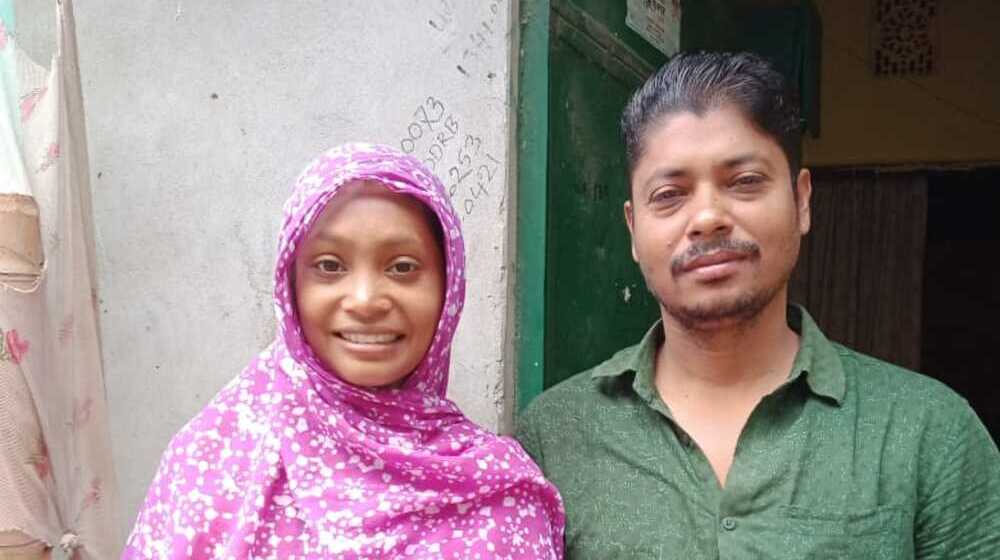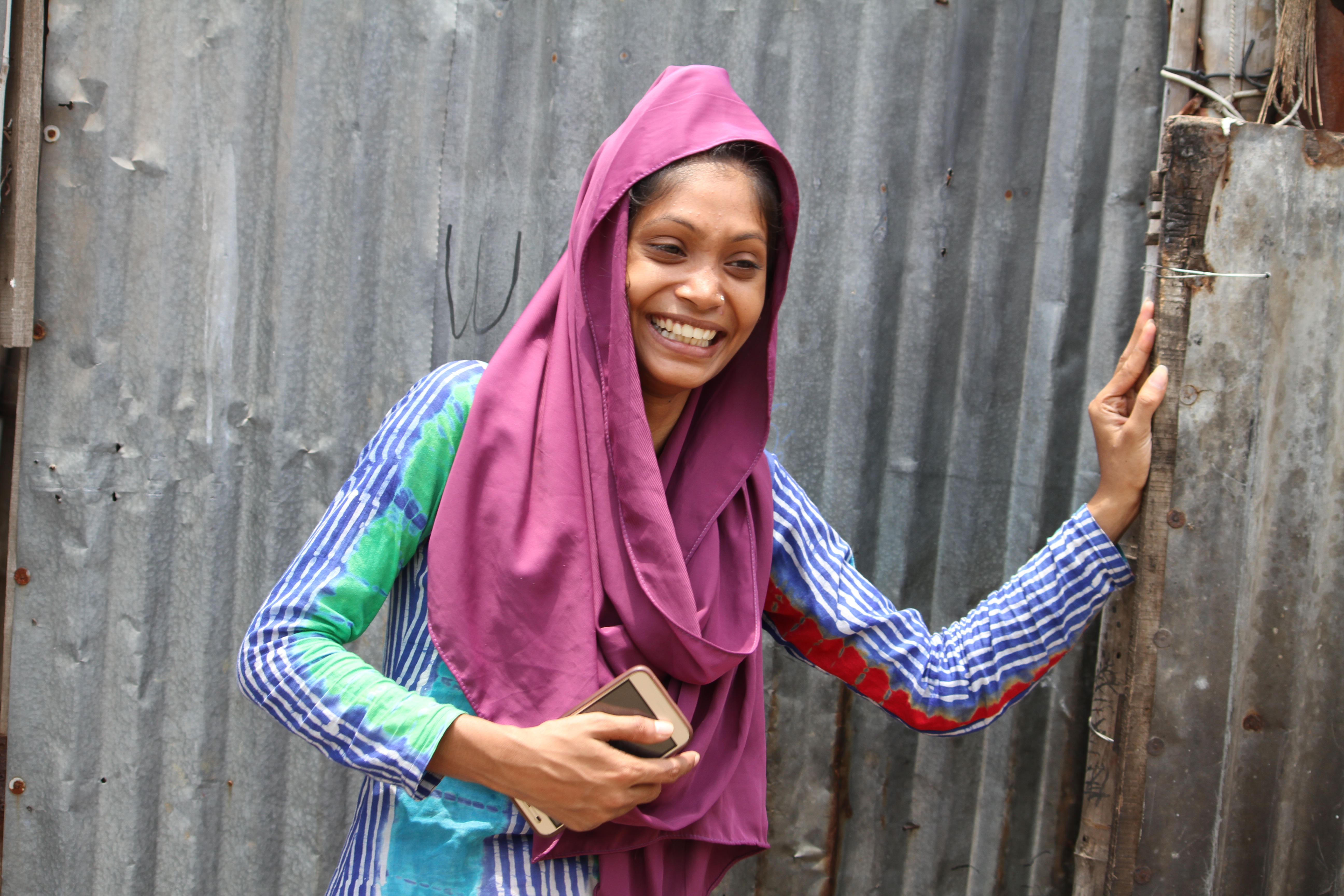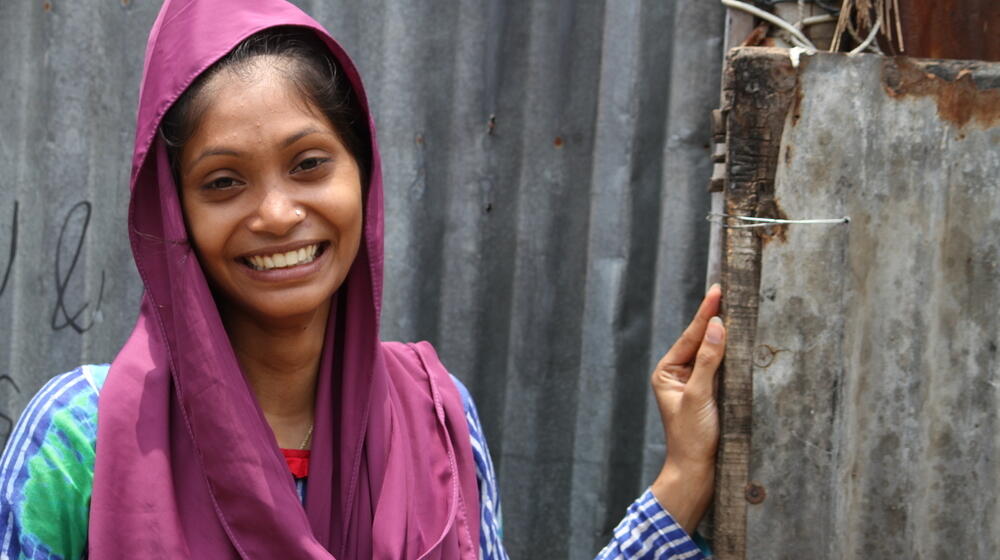“My father is the sole earning member of my large family. We have five sisters, and it is often really difficult for him to make ends meet with the little income he earns from working in his small laundry shop in a nearby market.”
Riya Akter is an 18-year-old girl from Duaripara neighbourhood Dhaka, Bangladesh. At the moment, Riya and three of her sisters are being supported by UNFPA’s and WFP’s joint “Building Blocks” initiative, which aims to improve low-income women and girls’ access to menstrual products and nourishing food in the Duaripara and Bhashantek slums of Dhaka.
With funding provided by SIDA and USAID, the project provides two packets of disposable menstrual pads to almost 3,000 women and girls in the slums each month. The beneficiaries receive a text message on their phone, which allows them to redeem the packets from a shop nearby them. The transaction is completed through a blockchain-based mobile application called “Building Blocks”, which allows UNFPA and its implementing partners, BRAC and Concerned Women for Family Development, to reliably monitor that the beneficiaries are receiving the items assigned to them.
“This project has helped us in so many ways. Before, buying pads for all four of us put a real strain on my father’s income,” Riya explains. Despite this, Riya’s father always prioritized the menstrual hygiene of his daughters even before the project.

“Even before we started receiving support from this project, my father understood how essential sanitary pads were to us as we needed to be able to continue going to school during our period. Every month, he would make sure to set aside a portion of his income to buy them. It was rare for us to have to resort to using cloths!”
Riya’s father is an exception to the norm. In Bangladesh, it is rare for low-income families to be so committed to investing in their female members’ menstrual hygiene. Because menstruation remains a taboo, it is rarely openly discussed, which results in male members of the family often being unaware of the importance or basics of menstrual hygiene. As men are often the breadwinners in families, they do not see the value of spending their limited resources into managing menstrual hygiene.
What makes Riya’s father different then? Riya thinks the answer lies in improved awareness raising efforts over the past years.
“Initially, I think it was the guardian sessions in our school them made my parents realize the importance of using sanitary pads. Moreover, awareness is now being raised through TV programmes and mobile phones, which I think has helped to de-stigmatize menstrual health in our communities,” she says.
For Riya’s father, it was not difficult to grasp the importance of the message. “He understands that menstruation is not a matter of shame, but a very natural phenomenon that needs to be dealt with properly. My sisters and I did not even have to ask for sanitary pads. He would just bring them to us every month by himself! He is such a good man!”
The relationship between Riya and his father exemplify the type of Intergenerational Solidary, which UNFPA celebrates on International Youth Day this year. By encouraging open discussions about sensitive issues between different generations, parents are more likely to take the needs of young people seriously. This will help tear down the age-related barriers young people often face in accessing essential services and contribute to creating a more fulfilling world for all ages.



